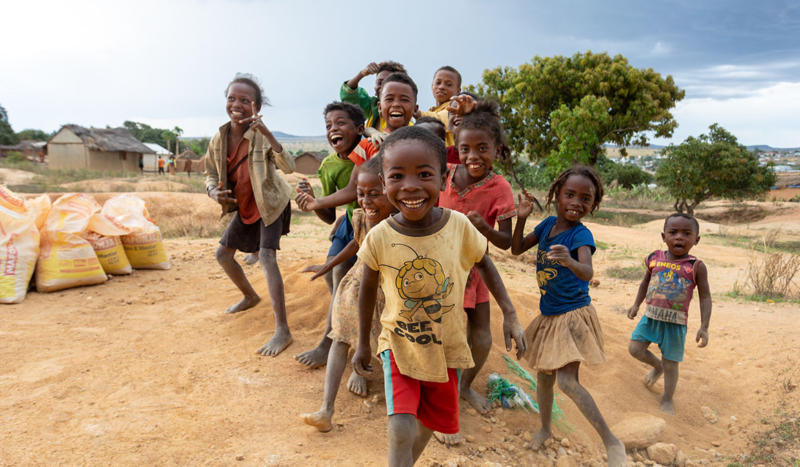
Artush / Shutterstock.com
Cardinal Fridolin Ambongo, archbishop of Kinshasa, Congo, penned a June 8 op-ed in The Wall Street Journal urging President Donald Trump and his administration to send targeted humanitarian aid to Africa, which the cardinal said is “morally good and of great strategic value to the U.S.”
Cardinal Ambongo, who is also president of the Symposium of the Episcopal Conferences of Africa and Madagascar (SECAM), wrote that many places in Africa are suffering from economic instability, political struggles, famine, poverty, and conflicts over natural resources. Support delivered through the U.S. Agency for International Development (USAID), however, has helped avert crises and save lives in Africa for decades, the cardinal wrote.
It “has enhanced African society and, in the process, strengthened American economic influence in the region,” he said. “We remain grateful for this.”
“Africa is a culturally rich continent with deep economic and human ties to the U.S., and a great admiration for American freedoms,” he continued. “Our culture is imbued with love and respect for the family, the goodness of life and the hope for a better future, which our fertility rates reflect. We are a religious people, convicted in our love for and dependence on God; rich in history as well as natural resources; and sincere in our gratitude to our global friends, who support us in becoming more self-reliant.”
Ending USAID support in Africa would have drastic and long-lasting effects, the SECAM president wrote.
“In short, the U.S. has transformed millions of lives for the better on my continent. Without U.S. support, even more internal conflicts would now be crippling Africa, leading to greater political instability and threatening the continent’s economic development,” Cardinal Ambongo wrote. “The end of USAID support will have untold consequences for generations.”
In March, Secretary of State Marco Rubio announced that 83% of contracts with the USAID had been canceled, leaving 1,000 still in place. Rubio at the time said that the canceled contracts “spent tens of billions of dollars in ways that did not serve, (and in some cases even harmed), the core national interests of the United States.”
In February, the Trump White House issued a statement that USAID had been operating for decades without accountability and detailed several examples of wasteful and harmful uses of the funding. One example the White House cited was $2 million going towards “sex changes and ‘LGBT activism in Guatemala,” and another was funding for creating “‘personalized’ contraceptives birth control devices in developing countries,” according to the statement.
>> US cuts foreign aid to democracy promotion in Nicaragua, Cuba, Venezuela <<
In his op-ed for the Wall Street Journal, Cardinal Ambongo wrote that “The American people are right to be concerned about the proper use of their limited resources. Their critics are foolish and unjust when they ignore that fact.” However, he added, specific humanitarian aid for Africa is greatly needed.
If the US does not support Africa, then China, Russia, Iran, and North Korea will make advances in its stead, the cardinal warned.
“This is already occurring in too many places, but it isn’t too late to turn the tide, creating a situation in which Africa and the U.S. both win,” he wrote.
Cardinal Ambongo also noted that aid should not be interwoven with pro-abortion or pro-“population control” ideologies, which run counter to many African cultures’ values.
“I believe that respect for African culture can coexist with humanitarian aid,” he wrote. “Cultural colonization needn’t be the price exacted for a moral, strategic and humanitarian partnership.”
Cardinal Ambongo shared in his conclusion that in his ministry he has encountered first-hand the needs and hopes of bishops, priests, and families across Africa.
“On behalf of those people, I ask President Trump and his administration to reconsider aid to his friends in Africa, who have been and will continue to be important partners of the U.S.,” he wrote. “We are eager to work closely with Washington to ensure that all such aid is used well, free of the fraud and mismanagement that has occurred in the past. There is too much at stake — for Africans, for Americans and for the world.”
